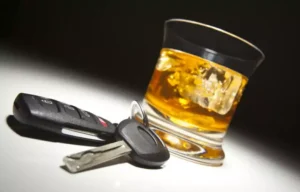Non-AA Recovery Groups: 5 Alternatives to Alcoholics Anonymous

Most of them involve an oyster swimming in its own juice or tomato juice, though sometimes it’s cocktail sauce. Usually there’s a lemon wedge and some hint of Tabasco — and yes, there’s usually at least a little booze. Knowing relapse signs can help you recognize your risk of relapse, and they may include a return to addictive thinking patterns and compulsive behaviors. All of these and more are legitimate reasons to look for an AA alternative.
Choosing the Best Approach For You

I stopped attending meetings because a lot of stuff I was instructed to believe became less useful the more “sober” I got. The other day I came across this great article that spells out the very frustration I would feel in meetings. In addition to feeling less anxious and having better digestion, you may notice bigger changes a few months getting sober without aa into sobriety. For instance, your doctor might find that your heart and liver are in better shape, or your skin may have a certain new glow. Relapse (using substances again after stopping) can and does happen, with 85% of people experiencing relapse at least once and half of them doing so within the first two weeks of sobriety.
Women For Sobriety

Depending on where you live or where the meetings are, AA groups might lean heavily toward one age, cultural background or gender. Do not allow COVID-19 to stop you from seeking the care you need. We are here to answer your questions and alleviate any concerns.
Build a Support Network
This gives you a quick and easy explanation for why you aren’t drinking. It also gives you a sense of purpose that can help you stay focused. Have some sober friends you https://ecosoberhouse.com/ can invite as your plus-one to a social event like a party or wedding. And stay in touch with your sponsor and call them if you’re feeling anxious or uncomfortable.
Prepare for potential alcohol detox
These are only a few of the signs that may indicate a substance use disorder. A licensed clinician uses this criteria—and more—to determine the likelihood and severity of a substance use disorder and formulate a treatment plan. It can seem intimidating to look at the end goal and know the many steps it will take to get sober. No one can wave a magic wand and make you or someone you love sober. Sobriety is a lifelong journey filled with challenges and obstacles but also incredible rewards.

Author: Find Recovery Editorial Team
Yes, we can share in their joy and be proud of their path, but remember that there is no only way to do this. Every single path to recovery, even those that require the assistance of others, is deeply personal. In AA specifically, meeting people who have lived through relapse and recovery cycles is common.
- Researchers found that 24% of AA or 12-step participants remained fully abstinent from alcohol after 12 months (2).
- A gratitude journal is an excellent way to shift your mindset from one of negativity to one of positivity.
- Others may have had negative experiences with AA in the past and are seeking alternative methods of support.
Achieving Long-Term Sobriety: Sober Without AA Alternatives
Many 12-step programs suggest that sobriety means total abstinence, which means never using the substance again. Other definitions, however, focus on the process of recovery and coping habits that support health and wellness over the long term. Recovery isn’t a one-size-fits-all situation and even though there are a lot of people around the world who swear by Alcoholics Anonymous, that doesn’t mean it’s for everyone. The key to lasting and long-term recovery from alcoholism on your own will come from taking away the best aspects of Alcoholics Anonymous and drug rehab and incorporating those practices into your daily life.
- Outpatient programs vary widely but typically provide a designated number of hours of treatment per week at a treatment center or facility.
- There is also a dating community for those looking for others who are practicing sobriety and looking for a relationship.
A counselor can address your personal issues and hold you accountable for your addiction. Trained professionals can help you integrate whatever medication is available into your treatment program. If you don’t think AA is the right choice for you, don’t worry. Alcohol consumption has a lot of negative effects on your body, and exercising can help undo some of the damage caused by substance use. Plus, the endorphins released while exercising help with mental wellness and even has been shown to reduce cravings experienced during late detox and early recovery.
I know what you’re thinking: Why didnt you go to NA?
Our holistic approach supports your physical, mental, and spiritual health through a range of evidence-based treatment modalities. Celebrate each day spent sober and acknowledge those victories in a way that is special to you. Online resources, such as podcasts and blogs, can also provide support and inspiration.







